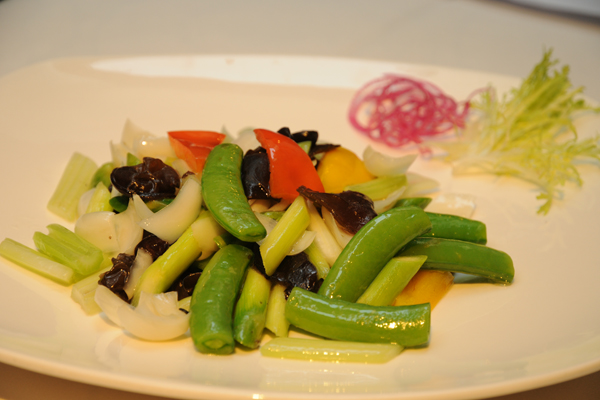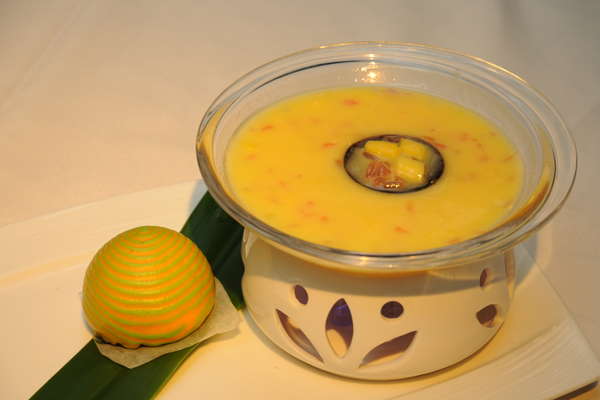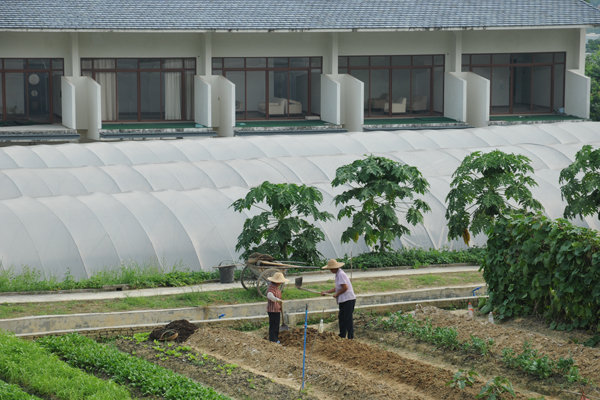Organic growth
Plants are fertilized with watered-down chicken manure. Fly traps and such plants as mint and camphor repel insects.
Melons and legumes are too heavy to be planted in the white pipes in which rows of produce grows in the hydroponic greenhouse.
 |
|
Rainbow Farm grows 16 kinds of plants in soil and hydroponic containers, and raises 75 chickens and fish. Guests can enjoy their fresh-from-the-land pickings in the hotel's restaurants.Photos by Xu Lin / China Daily |
The workers look for insects and check the soil-nutrient levels daily.
Another greenhouse houses four 10-cubic-meter cement fishponds. The water is filtered by aquatic plants and small fish before it's reused for up to three months.
 |
|
Rainbow Farm grows 16 kinds of plants in soil and hydroponic containers, and raises 75 chickens and fish. Guests can enjoy their fresh-from-the-land pickings in the hotel's restaurants.Photos by Xu Lin / China Daily |
The fish and chicken are fed extra or spoiled vegetables. The fowl eat corn soaked in water overnight and cornmeal, which are good for their digestion. Their brick coup has a large "backyard" for them to walk around in.
The farm doesn't host large livestock because of environmental limits and odors.
 |
|
Rainbow Farm grows 16 kinds of plants in soil and hydroponic containers, and raises 75 chickens and fish. Guests can enjoy their fresh-from-the-land pickings in the hotel's restaurants.Photos by Xu Lin / China Daily |
Executive chef Ji Chenglong regularly communicates with Guo so the farmers grow the vegetables he needs and knows what vegetables are in season.
He says about 70 percent of Yue Chinese Restaurant's dishes are organic. Organic dishes in the hotel's restaurants are marked on the menus.
"Vegetables' natural taste satisfies everyone," Ji says.
"The farm makes it easy to create new dishes. Sometimes, I pull what I need to cook from the land."
Related:






















